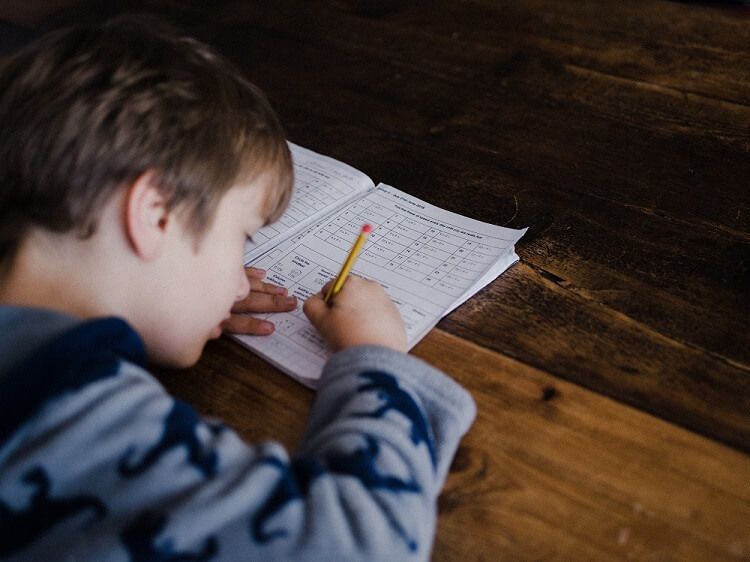When to leave your child home alone
Key points:
- How do you decide when your child is ready to be left home alone? It’s important to consider both the general recommendations from experts and your child’s individual maturity.
- Generally, children 10 and under should not be left at home for any amount of time. But as your child gets older, you can see how they do with short periods on their own.
- There are a few steps you should take to prepare your child, before leaving them home on their own.
How to tell when your child is ready to be stay home on their own
After who knows how many years of little ones clinging to you round the clock, the thought of leaving them at home to get some time with your partner or just run errands in peace can be exhilarating. Or terrifying. Or both.
How do you know when it’s safe to leave your child home alone?
The reality is, there’s no one set rule. Some US states have laws on the books setting the minimum age a child can be left on their own. Elsewhere, the law is a bit vague. For example, the law in Queensland, Australia says kids under 12 can’t be left alone ‘for an unreasonable amount of time.’
The bottom line? You have to use your judgment. But there are some tips you can follow to know when your kid is ready.
Leaving kids home alone: recommendations by age
Some kids mature faster than others, so it’s important to know your child and what they’re ready to handle. Here are some general recommendations by age:
Ages 0 to 7: no child left home alone
It’s a definite no on leaving your kid at home when they’re this young. Children at this age require constant supervision. Even short errands are out of the question. If you leave the house, they need to come with you.
Ages 8 to 10: not yet, but you can start preparing them
Kids at this age are more independent, but they’re not equipped to make sound decisions if there’s an emergency. Don’t start leaving them home on their own just yet. However, you can start preparing them for when they’re old enough to stay home alone, by giving them more responsibility and independence when you’re around and seeing how they respond.
Ages 11 to 12: start small
This is the age many experts say you can start leaving kids home alone for short periods of time. In one survey of US social workers, a majority agreed that 12 was generally the right age to start. But there are a few things you need to consider:
- 12 is not a magic number. Just because your child has reached tween status doesn’t mean they’re automatically capable of holding down the fort when you leave.
- Assuming your child is ready, you should only leave them on their own for short stretches at this point.
- Daylight hours only at this point. Don’t leave your tween home alone in the evenings and definitely not overnight.
Ages 13 and up: proceed with care
Chances are you can let your child stay home for longer stretches at this point. But give them any more than they’re ready to handle. And don’t leave them home alone overnight.

When your child can be home alone is all about one thing: maturity.
By 10 or 11, some kids are capable of being unsupervised for short periods of time. Others may not feel comfortable on their own until they’re 12, 13, or older.
There are a few other factors to consider besides your child’s age:
- How comfortable does your child feel being left on their own?
- Have you done everything you can to make your home as safe as possible?
- Does your child have a history of showing good judgment
- How will your child respond if there’s an emergency? Will they be able to cope without panicking?
How to get your child ready to stay home alone
You may be ready to leave your child at home for a bit, but there are a few important steps to take to make sure they’re ready for it:
- Talk with them about it first. Give them a chance to tell you what they’re comfortable with. Ask if they feel they’re ready to stay home on their own. If they seem up for it, make sure they know what to expect – such as how long you’ll be gone.
- Set some ground rules. For example: - No telling anyone else they’re home alone – including friends on social media. - What areas of the house (If any) are off limits – including outside. - Whether they can answer the phone and, if so, what to say – and not say. - If they can have friends over or not.
- Rehearse what to do in different situations. For example, what if someone comes to the door? Do you answer or not? What should you do if you smell smoke or the fire alarm goes off.
- Show them how to operate the home security system, if you have one.
- Set parental controls on all devices – TVs, tablets, mobile devices, etc.
- Make sure any controlled substances or dangerous objects are locked away and out of reach. Alcohol, cigarettes, guns, and so on.

When the time is right…
Remember, every child is different. Be sure to go at their pace, starting small and gradually giving them more independence as they prove they can handle being on their own for short periods of time.
Leaving your child home alone for the first time can be exciting and terrifying all at once. Just remember: you’ve got this.
Want to learn more?
Movember launched Family Man to improve the confidence and mental health of dads.
Learn how to master kick-ass parenting strategies by getting started with Family Man. It’s an interactive parenting video series that's expert-backed and funded by Movember.
If research is your thing take a closer look at the evidence behind Family Man.
Or learn more before diving in.